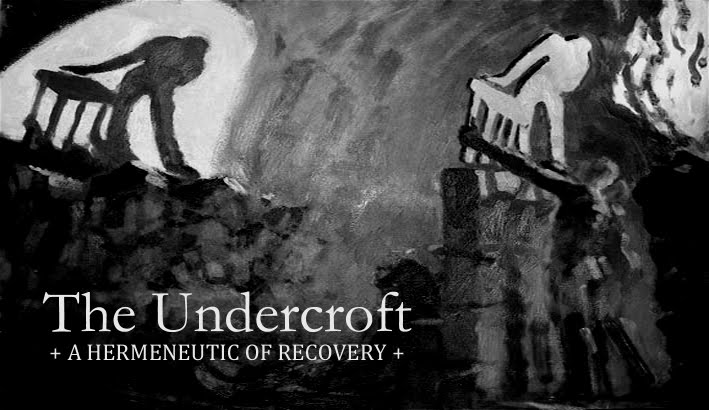To know oneself is a miracle greater than raising the dead.
- St Isaac the Syrian
Only Christ is the End; everything else is a means. If we approach Orthodoxy looking for anything but Christ - well, we might find it; more likely we won't, but it won't satisfy in any case. If, on the other hand, it's Christ we're seeking, we'll certainly find Him, and we'll certainly suffer. So, first of all, we have to be honest about what it is we're really looking for, and then we have to be prepared to pay the price.
If anyone is seeking simply to exchange one system of ideas for another, possibly more coherent, less problematic system, he needn't waste any more time following these reflections. Christianity is a Life, essentially - a life that must be lived if we're to know it for ourselves - and we have to know it for ourselves for it to save us. Repeating second-hand formulations, acquiring a "correct" apparatus, won't suffice. Ortho-doxy, "right-glory" is "a human being fully alive" in Christ (St. Irenaeus). It is nothing other than recovery of the "image and likeness of God" by participation in the death, resurrection and glorification of Jesus. It's quite possible that this doesn't interest us at all, and that we'd really rather have "religion" instead...
Four years ago, a kind Anonymous commented here as follows:
If you can live a proper Christian life within Rome, why leave? And if you can't live a proper Christian life within Rome, might the solution be found not in Byzantium, but rather by examining yourself? I have lately stood often at that quayside, and looked out at the sea. But to sail away is merely to turn my back on the problems I have here, and now; and my greatest fear is that I'll find them on the other side.This is absolutely right, I think. This is the question that must be confronted as the basic pre-condition of boarding. Attempting to get anywhere by grappling with "big ticket" issues in theology and ecclesiology, in the absence of a ruthlessly honest engagement with this question, is insane. But how on earth are we to get at the truth, through the thicket of vanity, ignorance, passion, misapprehension and self-deception?
The answer, I believe, is to do as follows. It is distilled from a riveting lecture by Fr Thomas Hopko (the link to which I shall post in due course, when we've got several other issues out of the way). I think that anyone who makes a serious attempt to follow this "Twelve Step Programme" will find the answers he needs - or, at least, the equipment he needs realistically to address the questions. In fact, this is nothing other than the permanent, perennial pre-condition of an authentic spirituality, which all of us are required to renew, daily and hourly, to our last breath on Earth. This "never stops":
- We must really desire the Truth, and we must be willing to do whatever is necessary.
- We must be hungry and thirsting - we must pray, in other words, for illumination, begging for God as He really is, and not some metaphysical construct or pious fantasy.
- We must be reading the New Testament, constantly; "not the Philokalia, not the Typikon, not the Canons, not The Rudder - the New Testament Scriptures." What we don't understand, we leave for the time being. What we do understand, we put into practice.
- We must go to Church. We must not, at this time, chant or serve or concern ourselves with anything other than standing there and being immersed in the Divine Liturgy. "If you feel like you're gonna throw up if you hear one more "Lord, have mercy!", throw up! - but stand there and let it lacerate you!"
- We must not tell any lies. We must not harm anyone. On the contrary, we must be kind to, and forgive, absolutely everyone, starting with those under our own roof. We must try regularly to do something good for others, without anyone knowing. If we have a little extra money, we should give it away.
- Unless we are married we must engage in absolutely no sexual activity - "not with yourself, not with the computer - not with anything". If we fall, we get up again immediately, say "Lord, have mercy on me" and begin again.
- We must not get drunk and we must abstain from bad food altogether and rich foods on a regular basis (Wednesdays and Fridays, usually) - we must begin to fast, in other words.
- We must practice silence for at least 15 minutes a day - not theologising or fantasising or "thinking" at all - when thoughts intrude, simply pushing them away; if they involve persons, commend them to God; and in general we must try, as far as possible without annoying others, to be quiet - not to talk much, and certainly not to chatter. We absolutely must not pretend at this time to teach, argue about, or formulate theological views.
- We must do our work, whatever it is, conscientiously and to the best of our ability, living in the present moment and not worrying about the past or the future. We must aspire to be rooted, not moving impulsively or precipitately.
- We must find somebody we can trust and discuss our lives frankly with them, dealing honestly with our parents, our childhood, our relationships, our religion, our culture. We must not, however, discuss in detail sexual matters, or other people.
- We must be honest in confronting addictions and compulsions - alcohol, drugs, pornography, rage, "religion" (on which more subsequently) - in order to be delivered from them.
- We must be ready seek help without shame or hesitation.







